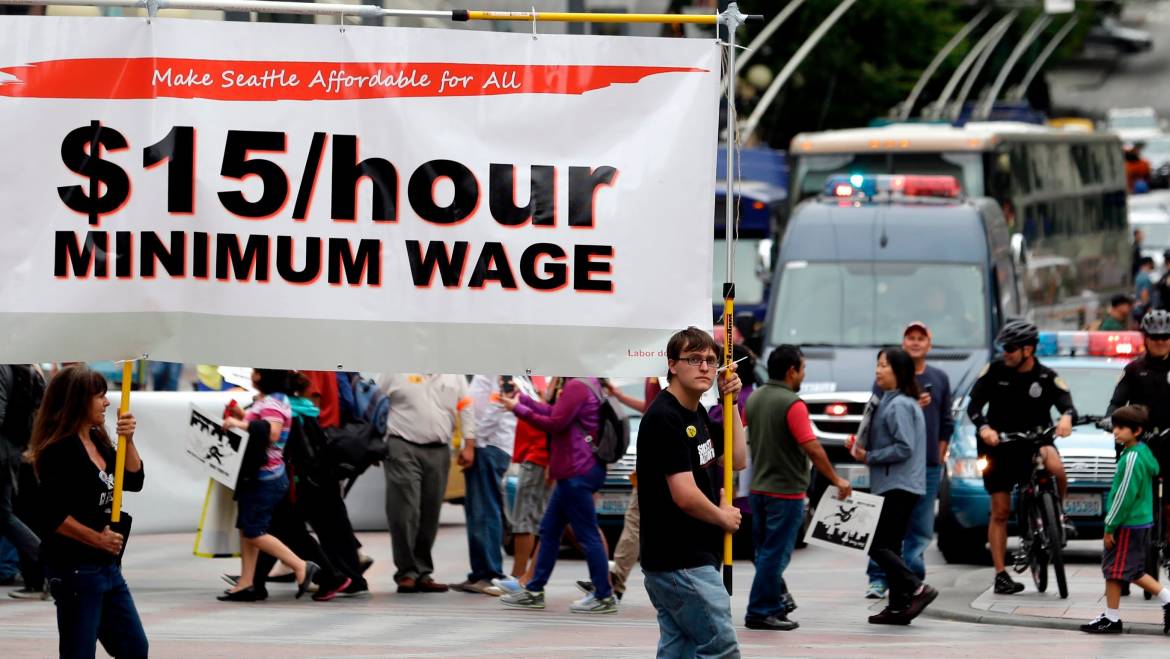Recently California and New York – those two bastions of liberal orthodoxy and economic stupidity (but I repeat myself) – have increased their state-wide minimum wage to $15. Such a dramatic increase is sold as a savior for low-wage earners, since the argument goes that by increasing the minimum wage, they will make more money. As with most bad economic ideas, what seems a good idea on the surface is actually a bad idea in practice.
Dramatically increasing the minimum wage only helps a few lucky low-wage workers. For the rest, they will end up being very low-wage workers, as in $0/hour, since companies will be forced to hire less in order to stay in business. In the end, hiking the minimum wage is cruel to those it is intended to help the most, as economist Don Boudreaux explains:
And also, what is so magical about $15/hour? Why not $20, $50, or $150/hour? If almost doubling the minimum wage will not negatively impact the economy (and will supposedly help it), surely increasing it ten-fold or more will be even better. The fact that most minimum wage advocates hesitate at such high numbers proves that they at least implicitly understand that there are negative consequences to the State enforcing certain wage levels.

